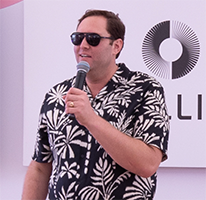A federal court has upheld what is believed to be the first conviction that included charges under the federal Can Spam Act.
Judge David Campbell for the U.S. District Court for the District of Arizona on Aug. 24 denied the requests of Jeffrey A. Kilbride, Venice, CA and James R. Schaffer, Paradise Valley, AZ for either an acquittal or a new trial.
The two were convicted by a jury on June 25 on eight criminal counts, including money laundering, fraud and obscenity connected with spamming.
Included in the convictions were two violations of the Can Spam Act, one for sending messages with false return address information, and one for using domain names that had been registered using false information.
When Can Spam went into effect on Jan. l, 2004, the two took steps to avoid it by arranging to log into servers in Amsterdam to make it look like their messages were being sent from overseas, prosecutors said.
They hired computer network specialist Andrew Ellifson to set up the servers in Amsterdam, according to court papers. They then hired Christopher Compston, a citizen of the Isle of Man to help them move their business offshore, the papers said.
The papers also said Compston helped Kilbride and Schaffer set up a front company called Ganymede Marketing in Mauritius, an island nation off the coast of Africa.
They also hired computer programmer Kirk Rogers who for $2,000 a week designed a software program that would automatically spam the operation
 Network
Network

